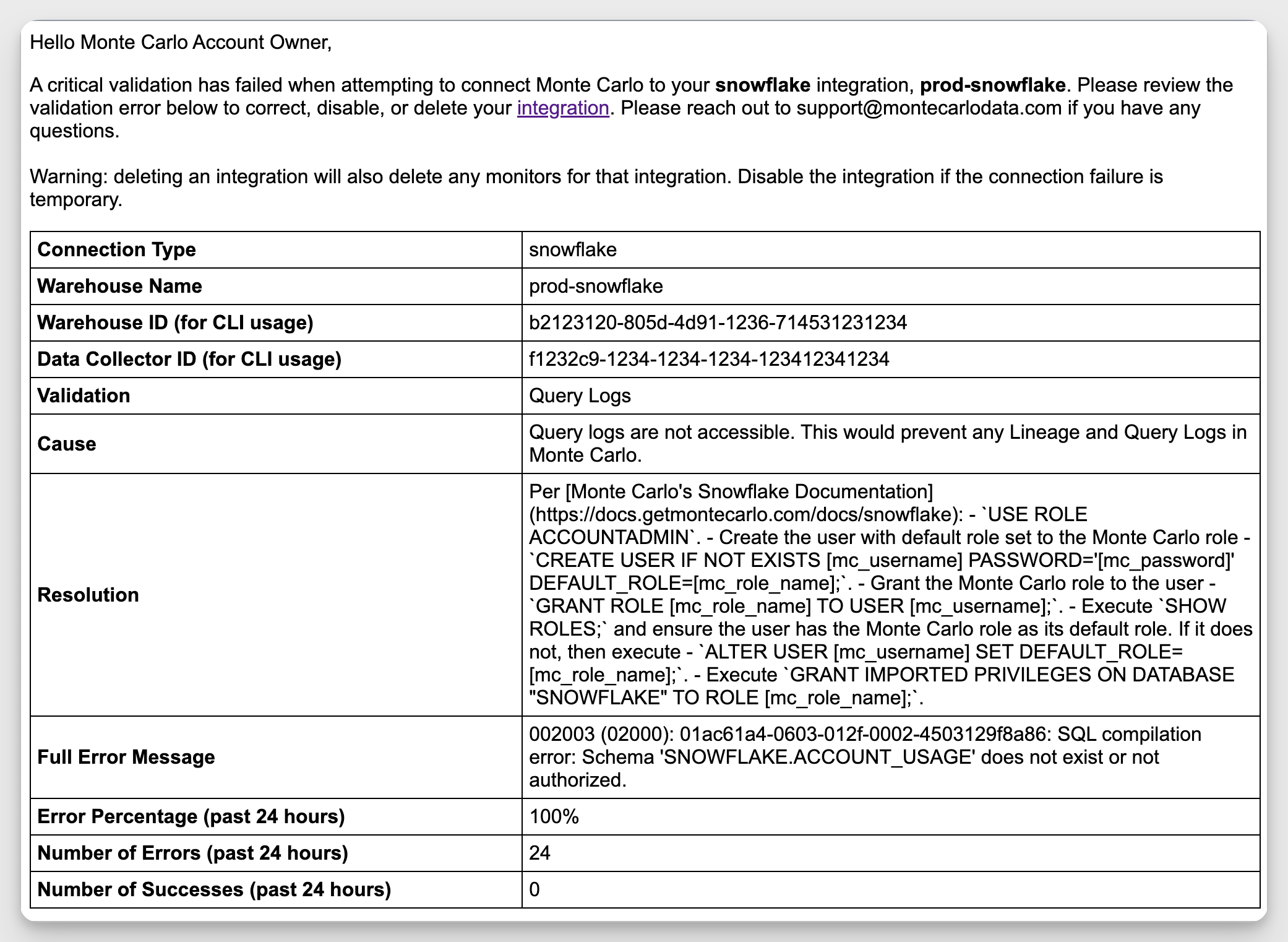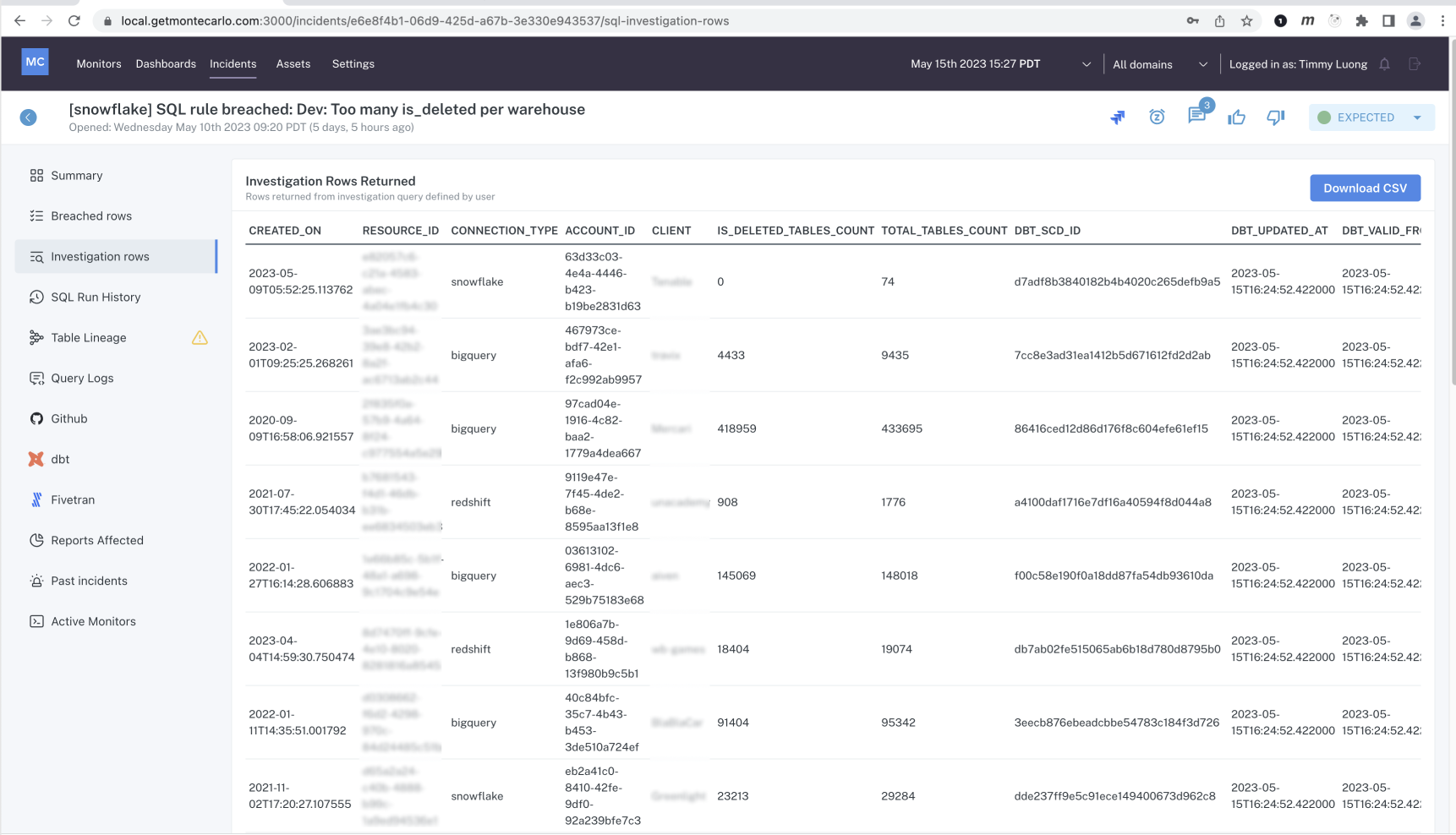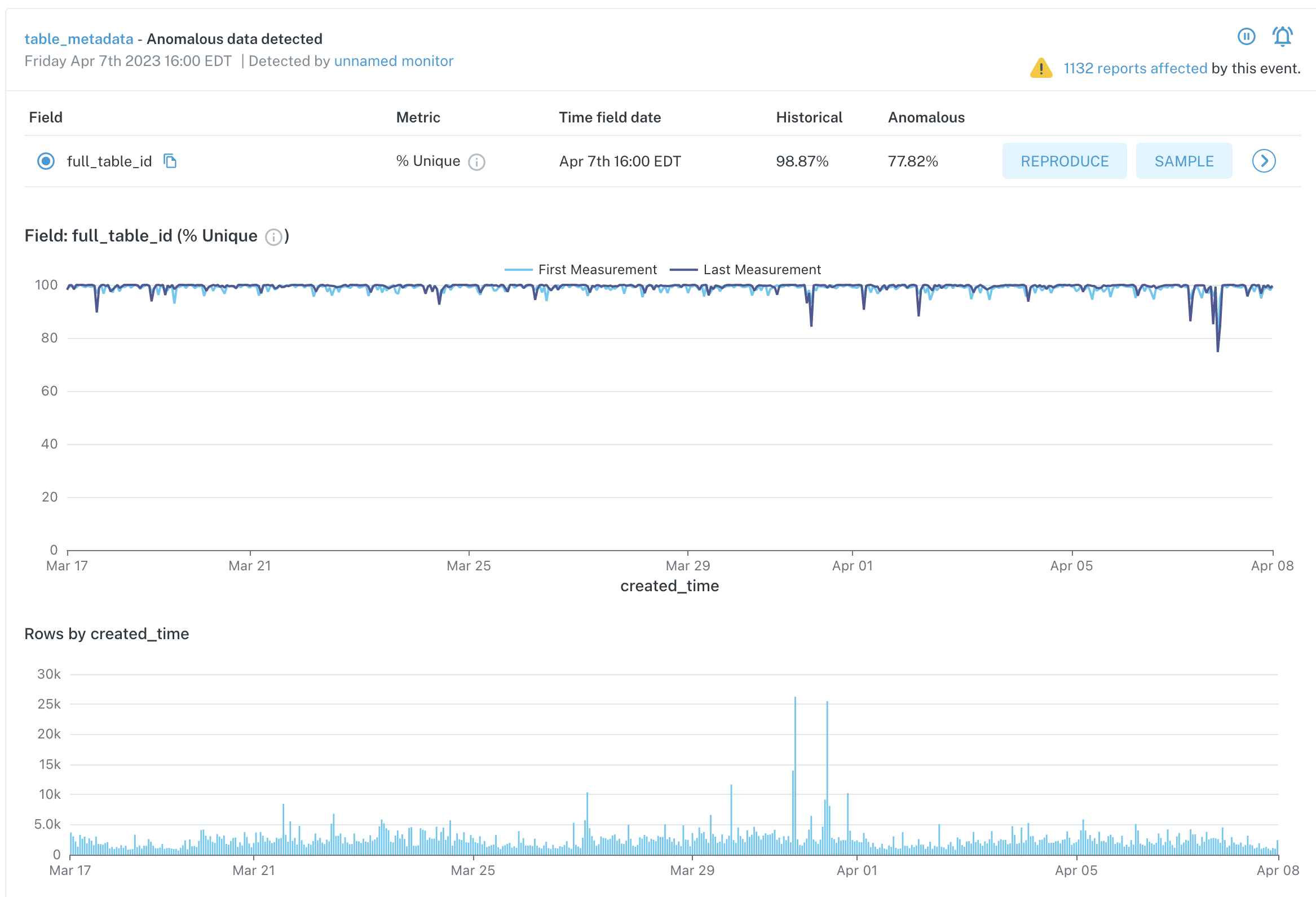
When query change is detected for an incident, users can now click on the "compare queries" link at the end of the insight banner on the query logs page to directly compare the pre and post change queries.

When query change is detected for an incident, users can now click on the "compare queries" link at the end of the insight banner on the query logs page to directly compare the pre and post change queries.

Users can now create Custom Auth Groups for the Account Owner and Domains Managers roles. Custom Auth Groups can then be mapped to SSO Groups. Previously, the Account Owner & Domains Managers roles could only be applied through default Auth Groups, which could not be mapped to SSO.

If a user creates or links a Jira issue from an Incident, a log of that activity is passed back to any Slack notifications that were sent out, increasingly visibility.

The status of a custom monitor is now broken down into three categories:
This gives clearer insight into what might be wrong if your monitor has not been operating as desired.

Users with the Account Owner role are now notified via email when an integrations fails a critical validation for collecting Metadata and Query Logs across Warehouse & Databricks integrations.
.png)
This new rule type allows users to create checks for:
The functionality is currently in beta. Users will see a 'Cardinality Rule' option on the custom monitor menu, but note that once a user finishes the creation flow, it will produce a SQL Rule.

In Incident IQ page of a SQL rule breach, under Investigation Rows tab, if there are rows returned from the investigation query, a button on the top right allows the data to be downloaded as CSV.

In Incident IQ, the Past Incidents tab now displays incident status and # of tables for each past incident.
Previously only available via our API, Fivetran can now be set up through MC UI. Under Settings -> Integrations users can now set up Fivetran connections.

The charting experience in Field Health has been modernized, making it smooth and more intuitive to navigate and understand field health anomalies and analytics.